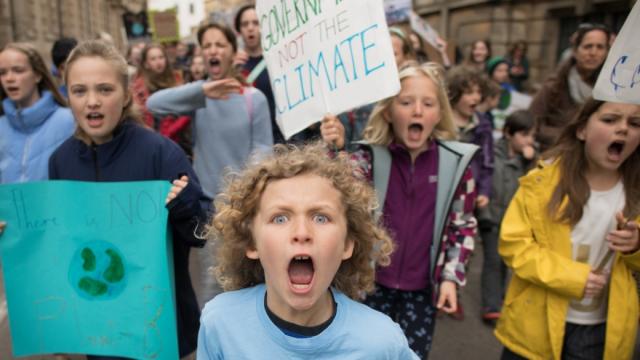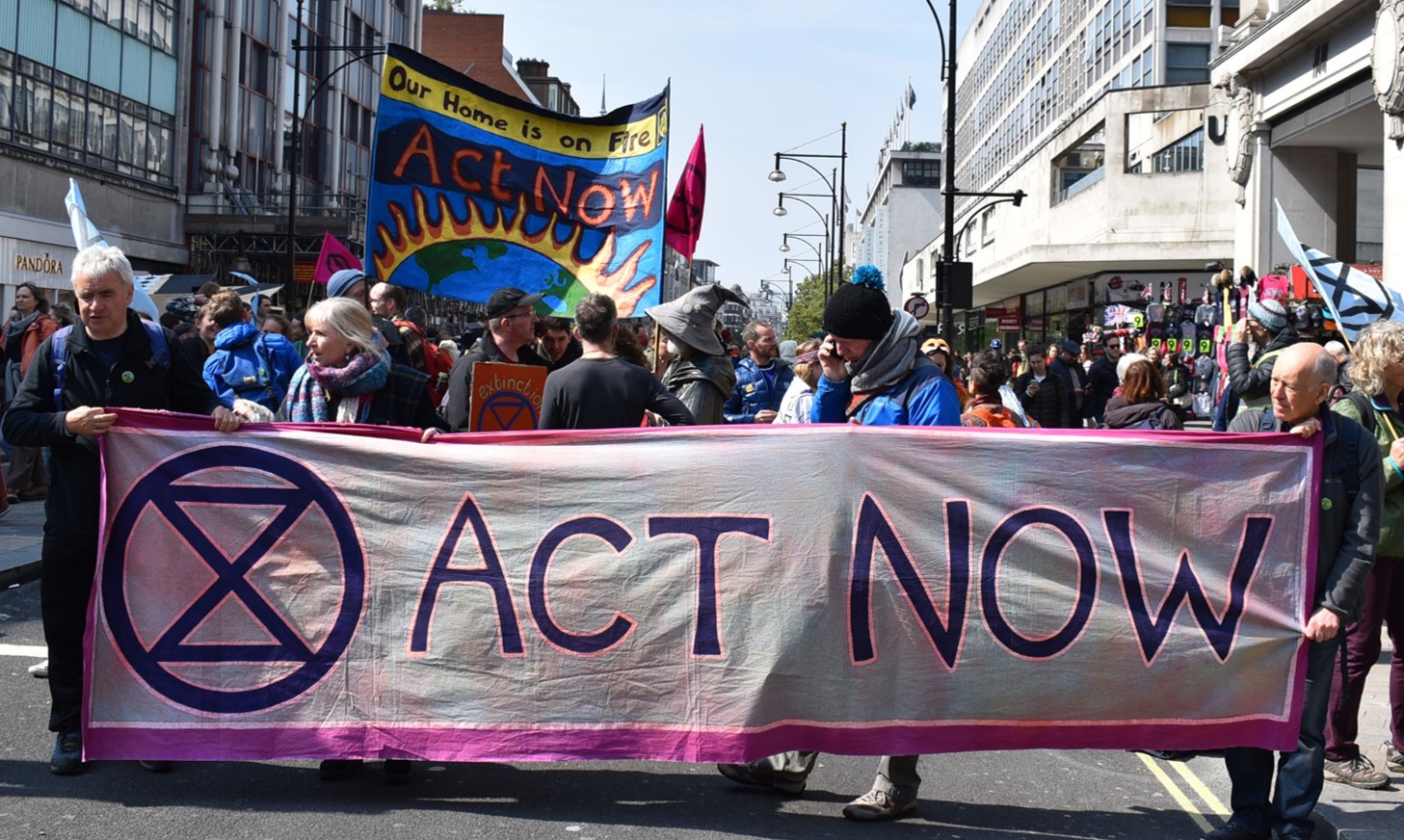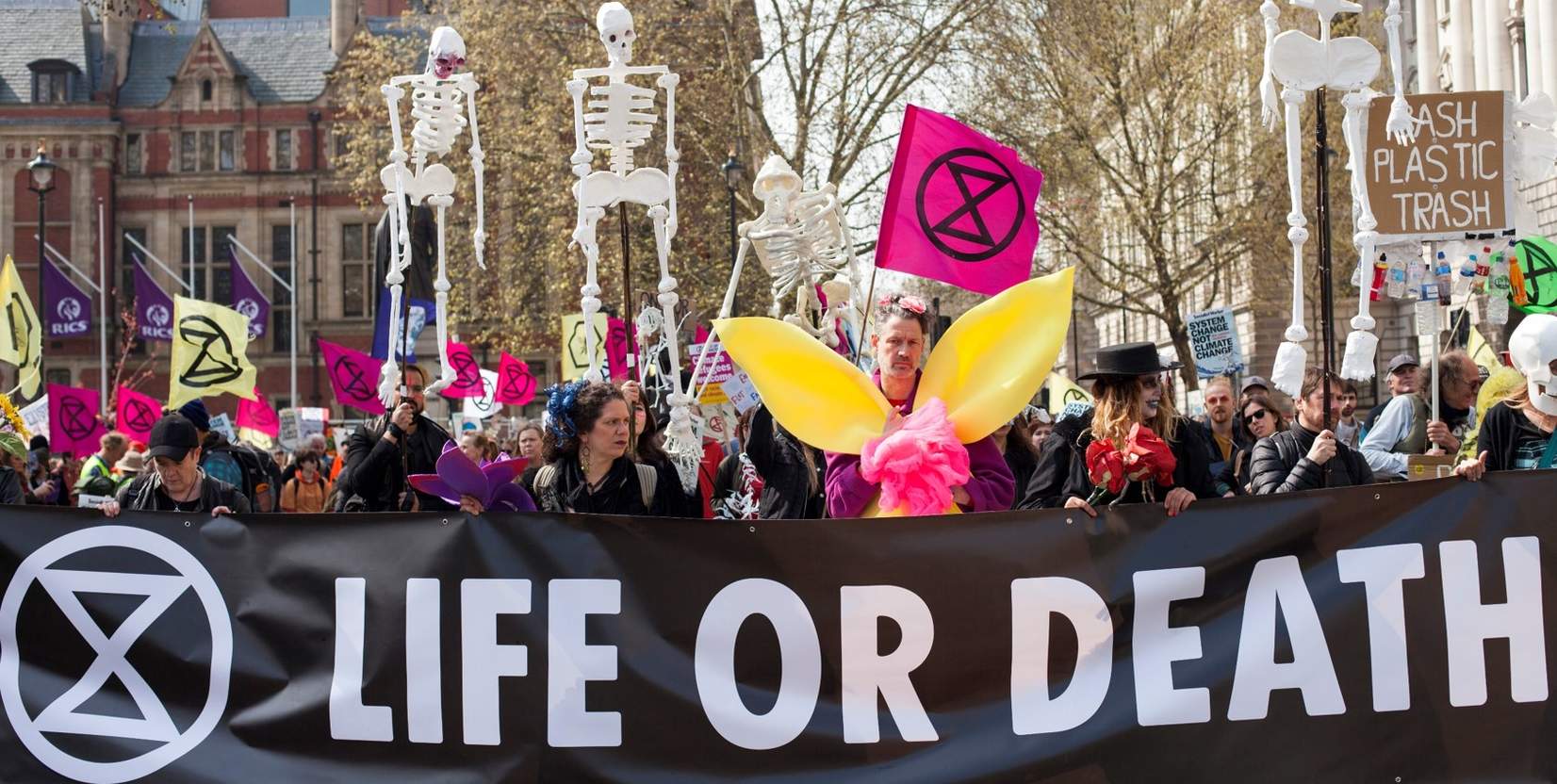
Barely a news bulletin goes by in Britain without a story about the antics of climate activists identified as Extinction Rebellion (XR). Despite having only formed in May 2018, XR has become an almost household name in the UK, while spreading its message about the urgency of tackling climate around the planet.
Hailed as heroes by those with an environmental conscience and a pointless nuisance by climate change deniers, the protestors are certainly succeeding in driving climate change to the forefront of public awareness and piercing the bubble of denial.
July is an exceptionally busy month for XR campaigners, as the socio-political group is targeting five cities across the country with civil disobedience in a bid to push the government to take greater action against climate change.
Known as the "Summer Uprising", the month-long protests involve activists "occupying" major UK cities. Starting July 15, environmental protests are to occupy Bristol, Cardiff, London, Leeds and Glasgow, disrupting key transport routes and taking over public spaces. Each protest will be centred around a different theme related to the ecological crisis.
The theme in Bristol is rising sea levels in relation to the city’s maritime history and its risks of floods. According to NASA, flooding is likely to be more regular in Britain by 2050 if climate change isn’t “urgently addressed.”
In Scotland, XR protests are focused on justice for climate change refugees. In June, the activists glued themselves to the Scottish Parliament building at Holyrood, demanding the Scottish government change its policy on climate change.
As well as fleeing war, political persecution and intolerance, people flee their country because of environmental disasters, including droughts, floods and famine. XR protestors and other environmental campaign groups are urging the UK to do more to help people being displaced by climate change.
As Friends of the Earth notes: “The UK is a stable, tolerant and compassionate country, and we should take a lead in welcoming our fair share of these people in need. But we must also tackle the bigger issues - including global warming effects on environmental refugees.”
July’s mass Extinction Rebellion protests follow similar action by the group in April, which brought parts of London and other cities to a standstill.
The campaigners’ bold exertions are certainly being noticed and acted upon. In April, a Labour motion calling the UK Parliament to declare an environment and climate emergency was unanimously passed. And in June, the government signed a target to bring the UK’s greenhouse gas emissions to net zero by 2050 into law.
The climate emergency motion was a key demand of the XR protests in April. Noting the outcome of their actions, the campaigners called the UK Parliament’s climate emergency declaration “historic.”
However, despite the positive upshots deriving from XR’s actions, the organisation says government action is weak, and more seriousness and urgency is required at both a local and national level. “They are making weak commitments, encouraging ecologically damaging projects and taxing sustainable alternatives,” said the group. By focusing on profits and economic growth, XR warned that political leaders are “failing in their duty to act on our behalf.”
Promising a bolder course of action on climate change, shadow chancellor John McDonnell praised the exploits of XR, noting how the disruption caused by the demonstrators has “definitely been worth it” to raise awareness of the climate emergency.
Following the arrest of more than 1,000 XR members during April’s ‘direct action’ protests in London, McDonnell invited representatives of XR to brief shadow ministers on their assessment of the potential solutions to the crisis.
Labour says it will make overcoming the threat of the climate emergency the “key priority” of the Treasury in the next Labour government. As well as taking measures to encourage green investment, Labour says it will deter financial institutions from pumping money into polluting assets. Tories are not getting behind the issue with even remotely the same seriousness.
In stark contrast to McDonnell’s readiness to listen and take advice from XR campaigners, Boris Johnson, former foreign secretary, London mayor and frontrunner for the next Tory leadership, hit out at Extinction Rebellion protestors.
Adopting an economic-prioritising stance typical of his party, Johnson condemned XR for “paralysing public transport in the greatest city of earth and stopping people from getting to work.” Johnson mockingly urged its participants to “lecture” China instead.
An even more high-profile and controversial case of intolerance toward environmental protestors involved a female Greenpeace demonstrator who was grabbed by the neck by Conservative MP Mark Field, after several climate protestors disrupted the annual black-tie Mansion House dinner for top city executives and industry leaders in the City of London.
The protestor was shoved out of the room by Field, who told her: “This is what happens when people disturb our dinner.” The incident led to Field being suspended as a foreign office minister. But the suspension hasn’t deterred Field's aggressive hostility toward environmental and social actions; only weeks later, the Tory MP controversially referred to a homeless charity as a “magnet for undesirables.”
Whether people are united with or opposed to Extinction Rebellion and its hard-hitting, no-nonsense methods of demonstration, the young, fresh, radical climate change group is succeeding in ruffling the feathers of protest-snubbing, climate change deniers and making inroads in the quest to bring the environment to the forefront of modern politics.














